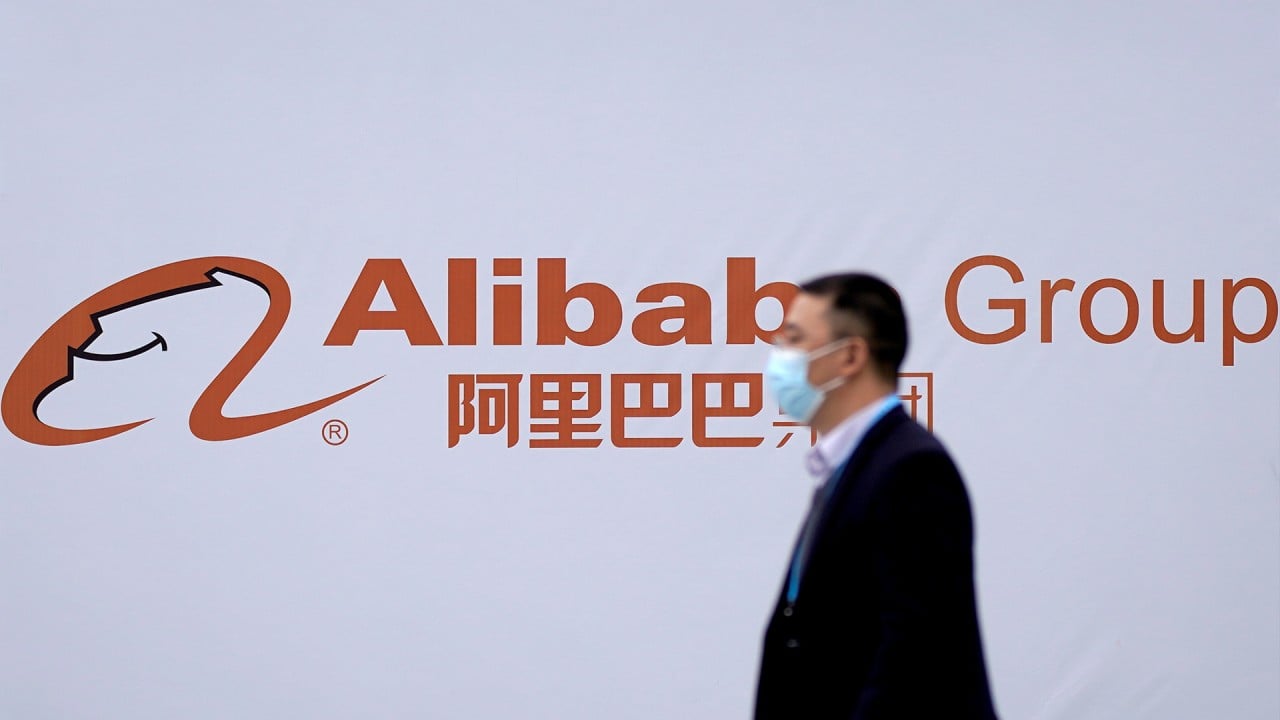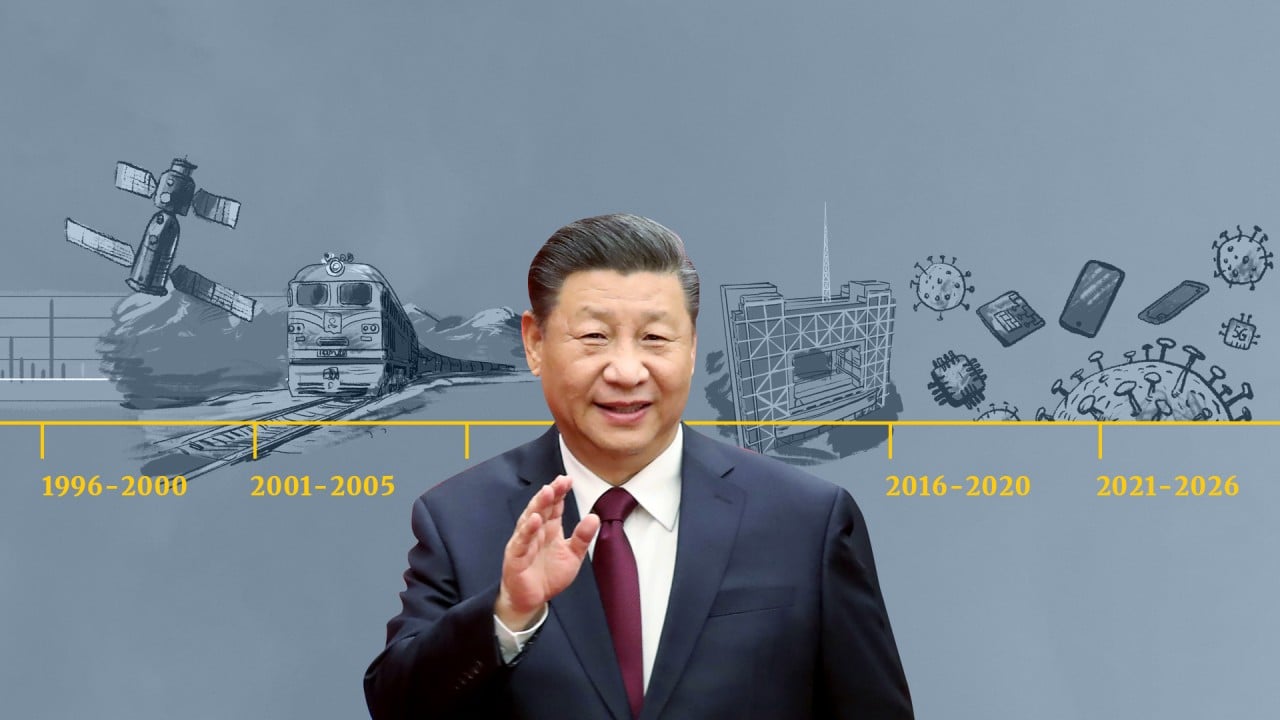
Is there a floor for Chinese tech stocks? Covid lockdowns trap bulls as price targets are slashed again
- China’s biggest tech stocks suffered another round of cuts to their upside potential last quarter as Covid-19 disrupted business activity
- Analysts trimmed their 12-month target for Alibaba, Meituan by 19 to 26 per cent last quarter, despite deep revisions in 2021
Top stocks with the heaviest weightings in the Hang Seng Tech Index saw an average 15 per cent derating in the consensus 12-month price targets last quarter, according to Bloomberg data. That is a major cutback compared with an average 2 per cent reduction during the final three months of 2021.
“Many analysts are cutting their earnings projection mainly due to the relatively bearish sentiment of policies, especially in internet and real estate sectors,” Xu Lirong, chief investment officer at Franklin Templeton Sealand Fund Management, said in an interview. “They can’t find any positive signals.”
Citigroup, HSBC, UBS and Nomura are among the latest banks and brokerages to knock down their assessment of Alibaba’s stock appreciation potential, as Covid-19 disrupted business activity in several mainland provinces.
The consensus for Alibaba now stands at HK$160.68, versus as high as HK$339.33 in January last year. Alibaba sank 5.1 per cent on Monday to HK$98.50, having reached an all-time low of HK$71.25 on March 15.
Hopes for a major policy stimulus are deflating as policymakers in Beijing kept the toolbox untouched amid a wave of Covid-19 infections and inflation risk. Many economists are now saying the fallout will undermine China’s aim of achieving 5.5 per cent growth this year.
BNP Paribas Asset Management increased its allocation to Chinese equities as Beijing has “committed to providing additional fiscal and monetary policy support to compensate for the drag on growth,” chief market strategist Daniel Morris wrote in a note published on Thursday.
“It is worth recalling that the Chinese leadership recently committed to a 5.5 per cent growth rate this year,” Morris said. “In general, what the Chinese government wants, the Chinese government gets.”
Still, investing in Chinese stocks calls for a reassessment in valuations because of the added political consideration, said Kent Chan, equity investment director of Los Angeles-based Capital Group, which managed US$2.7 trillion at the end of December.
That means applying a higher risk premium to Chinese equities with comparable businesses to listed stocks in other countries that don’t have the same political risk.
The “playbooks for large internet-platform companies have changed,” he said. “Their high-growth days are now more measured and that reality is somewhat reflected in their stock prices.”




